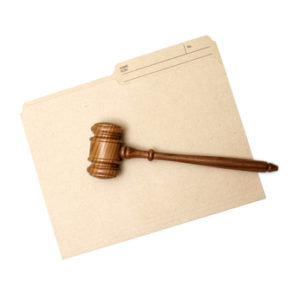
Banks often struggle with how to appropriately respond to a subpoena duces tecum for customer records while also complying with federal law that protects a customer’s information. A bank may be required to comply with the subpoena, it may choose to comply in order to accommodate the court or it may refuse to comply all together if it has sufficient legal reasons to do so.

A bank may be served with a subpoena duces tecum from several different parties, including federal or state grand juries and third party litigants. Its response will vary depending on the party issuing the subpoena, those involved in the lawsuit and the content of the subpoena. Receipt of a grand jury subpoena involving a criminal matter can be especially alarming for a bank and requires special attention.
Subpoenas can come with a variety of problems for a bank. For example, the request for documents may be so vague that a bank has difficulty figuring out how to respond. In the alternative, a subpoena may request so many documents that it might be deemed oppressive by a court. In particular, a subpoena may be written in such a way that compliance would cause the bank to violate a federal consumer protection statute. There are obviously many factors that a bank must take into consideration when deciding how to appropriately respond.
In making that decision, a bank should consider whether it has any grounds to move to quash or modify the subpoena duces tecum as being oppressive or unreasonable. Those grounds can include: (1) that the requested documents are irrelevant; (2) that the subpoena fails to allow reasonable time to comply; (3) that the subpoena requires disclosure of privileged or other protected matter; (4) that the subpoena subjects the bank to an undue burden; or (5) that the subpoena fails to identify the desired documents. If there are sufficient legal grounds, a bank should strongly consider making such a motion. This will allow a bank time to consult with its attorney and, if permissible, notify its customer of the request. By notifying its customer, a bank provides the customer with the opportunity to contest the disclosure. Additionally, the motion gives the bank an opportunity to argue that the cost of the production should be borne by the requesting party.
If your institution has received a subpoena duces tecum and has questions about how to comply with the subpoena and how to best protect itself, please contact Morgan Pottinger McGarvey.